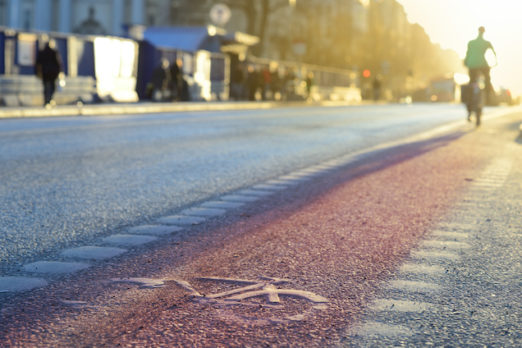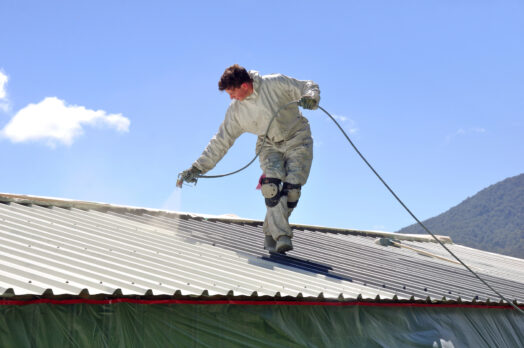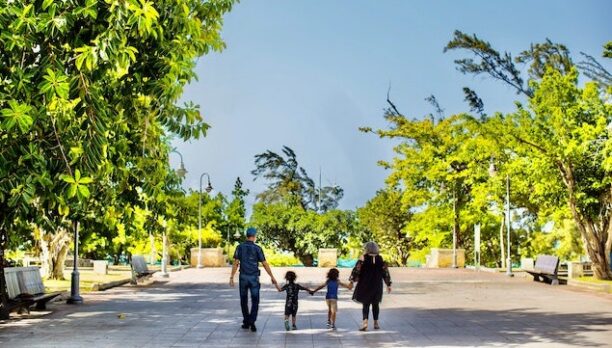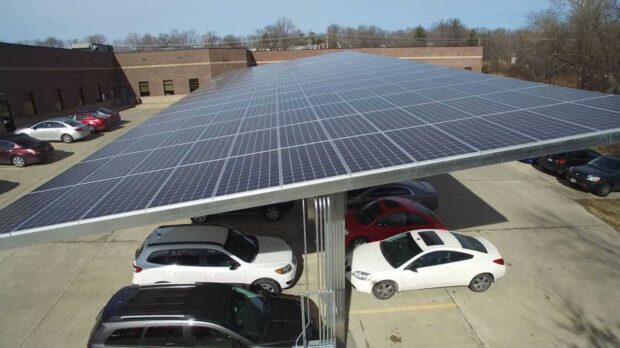
Lessons from the pandemic that can help heal our planet
As we begin a new year, the COVID-19 pandemic continues to disrupt lives, businesses, and entire economies. At the same time, climate change is fueling increasingly powerful natural disasters—massive floods in the southeast caused by slow-moving hurricanes, and megafires that shrouded the western states with smoke throughout the fall.
We all want life to get back to normal. But as we struggle with the dangerous impacts of climate change, it’s clear that our old path was not the best way forward and we now have a rare opportunity to change it. If we make the right decisions on how to restart our economies, we can emerge from this crisis with better ways of working, living, and traveling to make a healthier, more sustainable world.
We’ve seen that collective action works. The initial shutdown of global travel and industry made an immediate impact on the environment. People saw blue sky in parts of the world for the first time in decades, and reduced traffic in the canals of Venice cleared the water to see fish swimming below. As we restart our economies, we can pause and rethink how we do it.
Making cities and businesses more resilient and resourceful
Cities can make changes now to be more sustainable and flexible to meet the needs of their citizens. Here are a few ideas how:
- Embrace remote work. While some people will go back to the office, many companies are embracing this new way of working going forward. It decreases the cost of office space, saves employees time by eliminating commutes while reducing CO2 emissions by taking cars off the roads.
- Turn streets over to bicyclists and pedestrians. Cities around the world temporarily closed off miles of roads to cars to encourage bicyclists and have now decided to make those changes permanent. Technologies like adaptive lighting make bicycling safer by monitoring traffic and automatically brightening lights when cyclists approach, and then dim to save energy when not in use.
- Monitor air quality for safety. Megafires have been shrouding western states with hazardous smoke for weeks. This toxic smoke makes people even more vulnerable to COVID. Air quality sensors have become essential tools to give people real-time data about the safety of their local air.
- Improve power reliability. There is an increased demand for electricity at home, so cities need better visibility into this data to allocate resources accordingly. The availability of dependable power is crucial to health and safety for those working and attending school from home. It’s critical for utilities to automate and optimize grid operations to reduce the frequency and duration of power
- Provide broadband internet for all. Many remote and underserved communities do not have stable internet access to participate in virtual work, school and healthcare. We must invest in broadband to improve work, distance learning and health care services for everyone.
- Invest in green jobs, energy efficiency, and clean energy. Several European countries have pledged billions to focus on green initiatives as they build back their economies. The UK has promised to invest in energy efficiency upgrades to homes and buildings and technologies to remove CO2 emissions from the air. France and Germany are also investing billions in transitioning from fossil fuels and subsidizing electric vehicles.
- Build a resilient infrastructure. Cities need a flexible and resilient technology foundation so they can quickly build and deploy new, efficient services that respond to the needs of their citizens.
- Develop flexible and regional supply chains. We have realized that it’s better to make and grow things closer to home rather than rely on overseas sources. Cities need to build automated and flexible supply chains allowing scalability and regional independence.
Conserving energy and water at home
Working from home has hopefully opened our eyes to how much energy and water we are using and shown us ways to reduce our consumption. Times of change can lead to new and lasting habits: Just like we’ve learned to wear a mask when we go outside, we can also learn to switch off the lights.
Spending so much time at home is also motivating people to get outside and appreciate nature and the simple gift of blue sky and fresh air. We have a unique opportunity to innovate and work together to take a new path and build a green recovery.

This past summer was both the hottest one on record and predicted to be the coolest one in our future.…

July 2023 was the hottest month ever recorded with temperatures shattered around the globe. Hundreds of millions of people across…

As the cost of solar continues to come down, more businesses are deploying rooftop solar and solar carports due to…